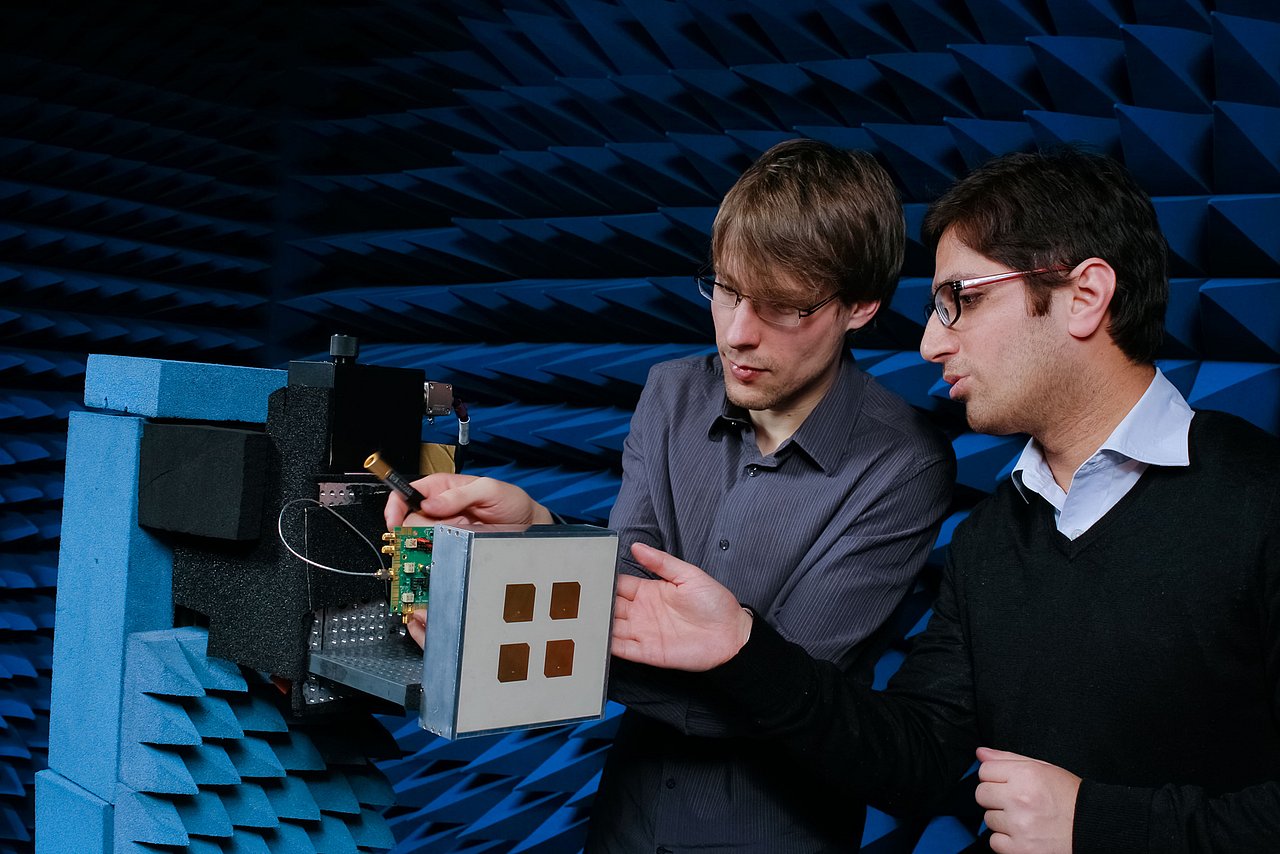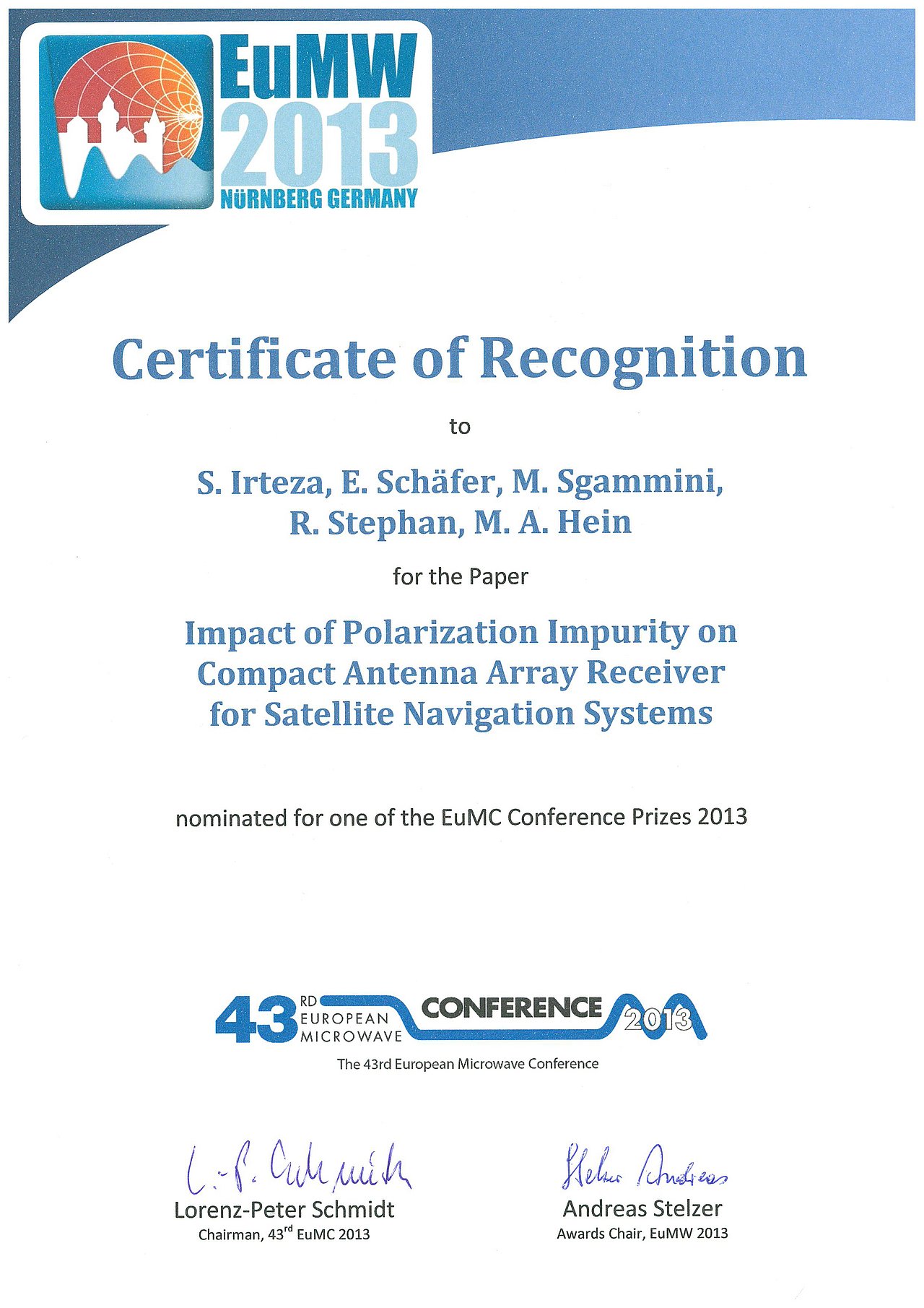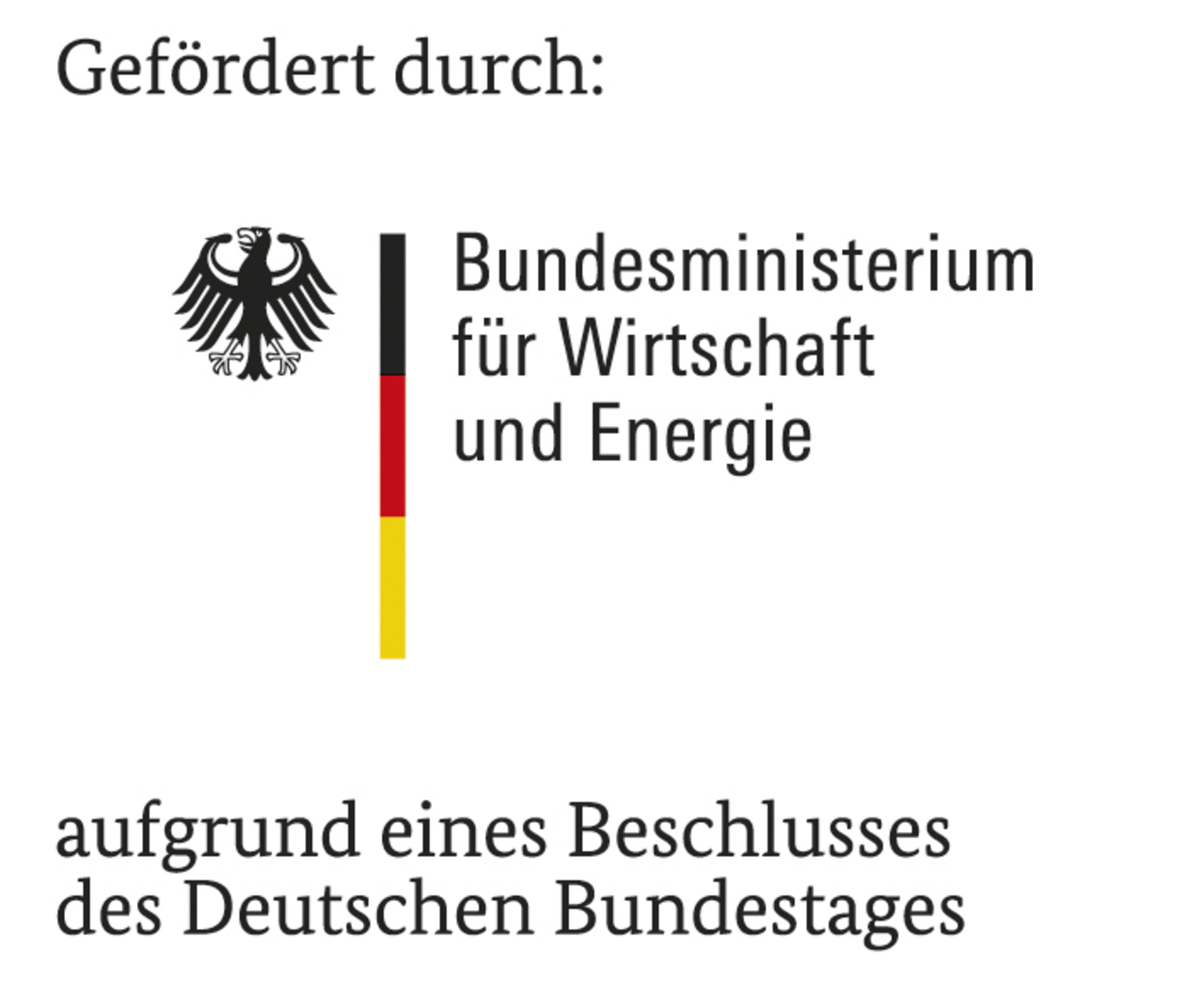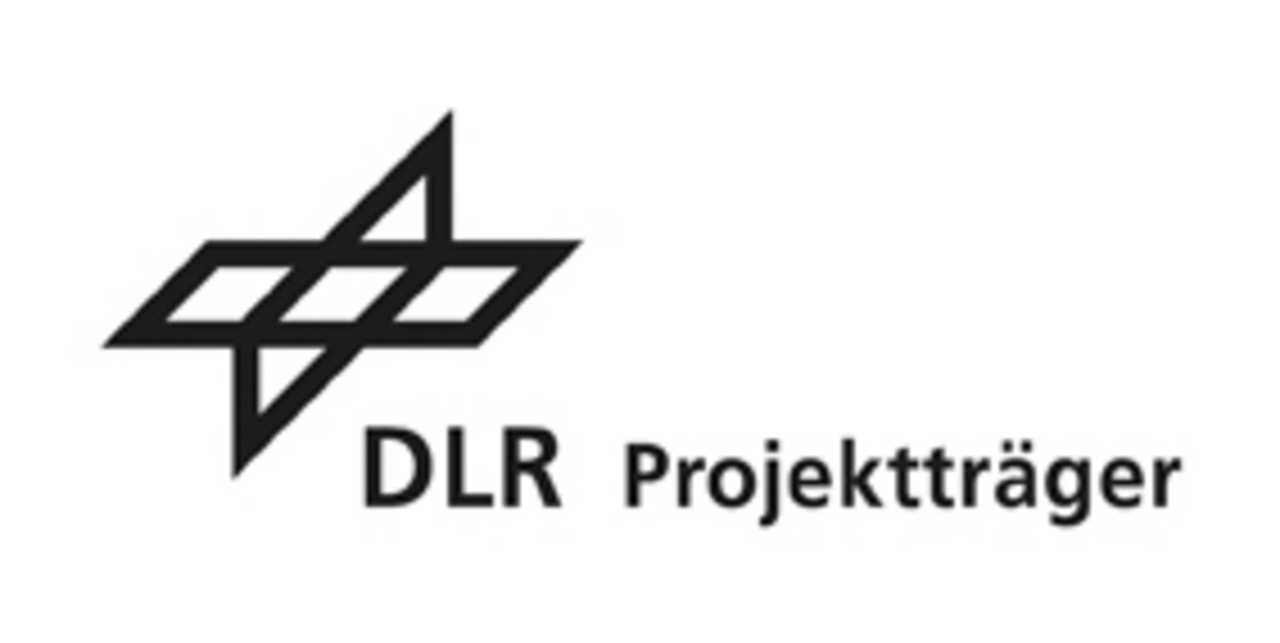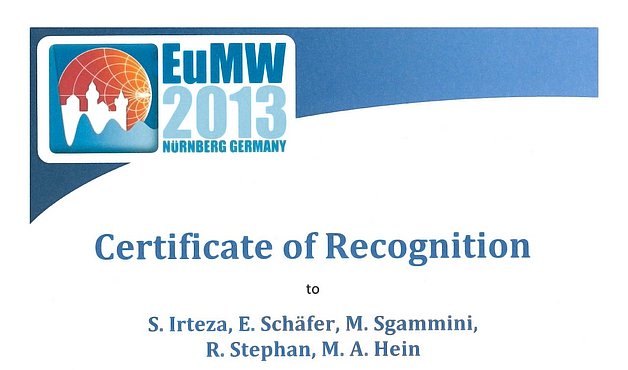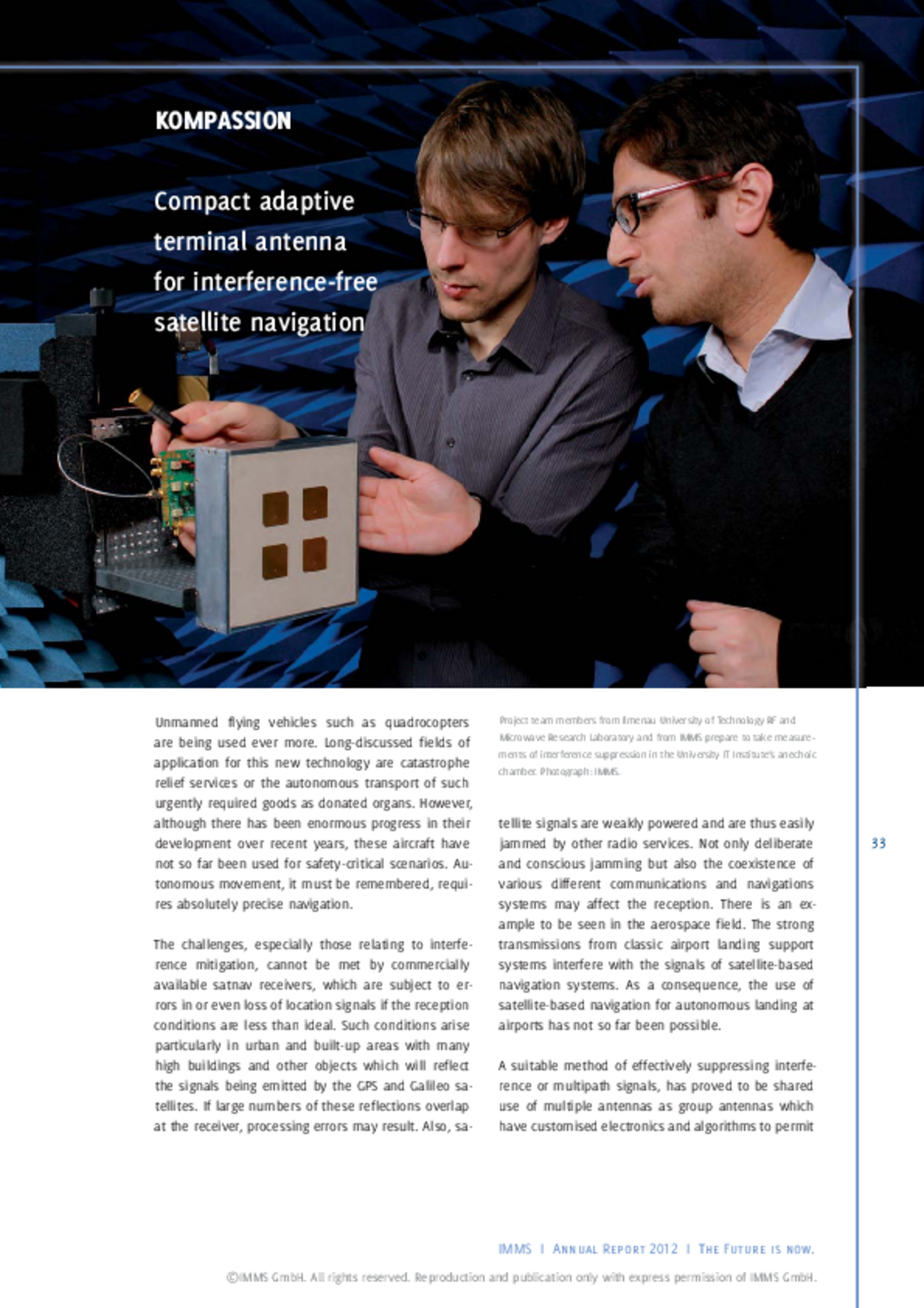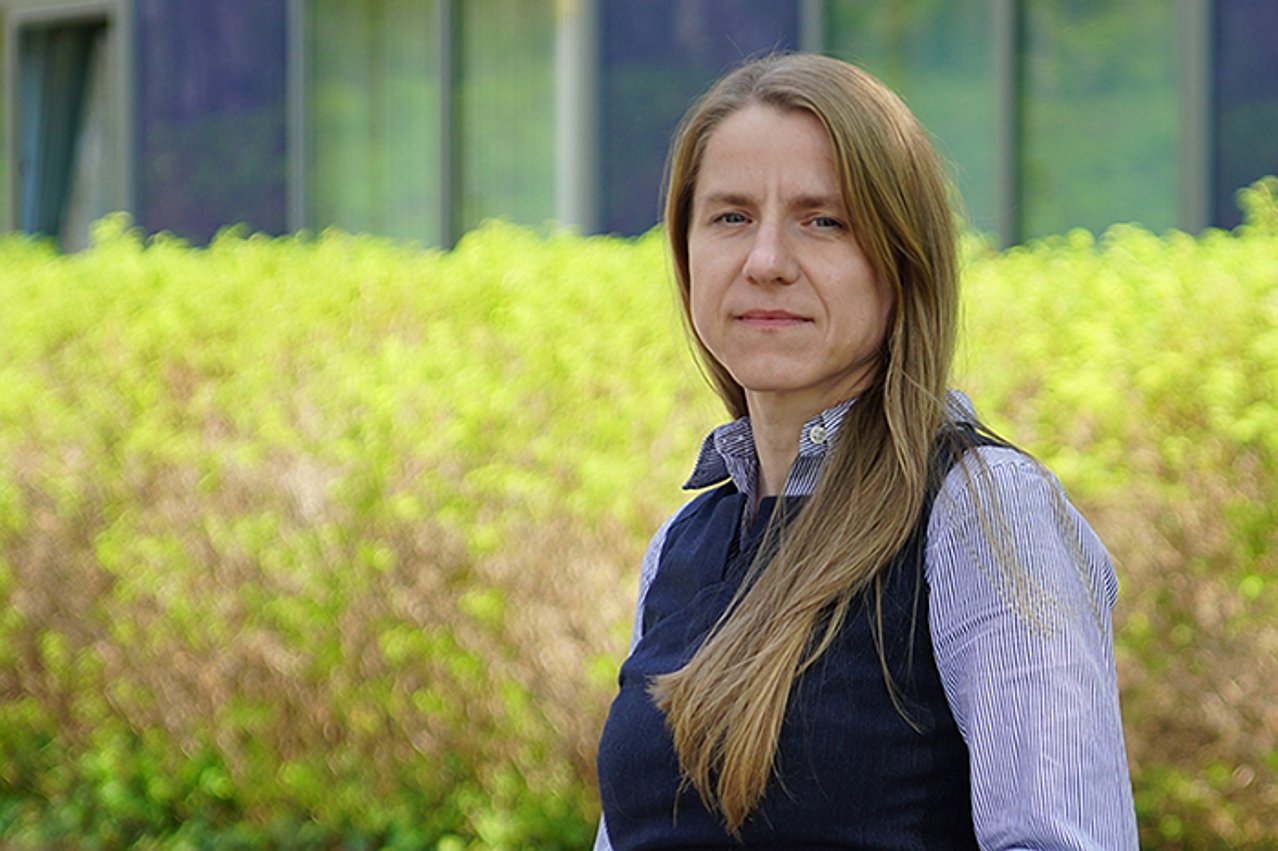Press releases
Best paper nomination at the European Microwave Conference 2013
Nürnberg/Ilmenau, 16/10/2013. At the European Microwave Conference 2013 in Nürnberg, Germany, the presented work on the „Impact of Polarization Impurity on Compact Antenna Array Receiver for Satellite Navigation Systems“ was nominated for the Best Paper Award. The topic was part of the three-year research project “KOMPASSION”, which ended on 30/09/2013.
Project
In this project, the German Aerospace Centre, Ilmenau University of Technology, RWTH Aachen, and IMMS were working on new designs, technology and algorithms to make the adaptive group antennas needed for satnav interference mitigation more compact. Antennas of this type fulfil the high requirement for interference robustness, which is necessary, for instance, in safety-critical situations where unmanned aerial vehicles are used. They have, however, been too large and heavy to date for use in small robots or mobile devices. The developed receiving unit is only one quarter the size of a conventional group antenna but has the same number of individual elements and demonstrates the applicability of the signal treatment developed. The IMMS developed the receiver frontend circuits to link the group antenna and the digital processing electronics.
Paper
The scientists from the RF and Microwave Laboratory of the Ilmenau University of Technology, the Institute of Communications and Navigation of the German Aerospace Center, and the Institute for Microelectronic and Mechatronic Systems presented a decoupled and matched four-element L1-band antenna array with an inter-element separation of a quarter of the free-space wavelength. They studied the impact of polarization impurity in terms of the receiver’s equivalent carrier-to-interference-plus-noise ratio when impinged with different numbers of diametrically polarized interferers. They observed that strong polarization impurity of the designed circular compact antenna array, particularly for the high-order eigenmodes, reduces the available degrees-of-freedom for nulling by half in the presence of linear-polarized interferers. The obtained results lead to new impulses for further investigations and interdisciplinary research.
Further information on the conference can be found here: https://www.eumweek.com
The IMMS Annual Report 2012 (see p. 33 et seqq.) provides more details on the “KOMPASSION” project.
Related content
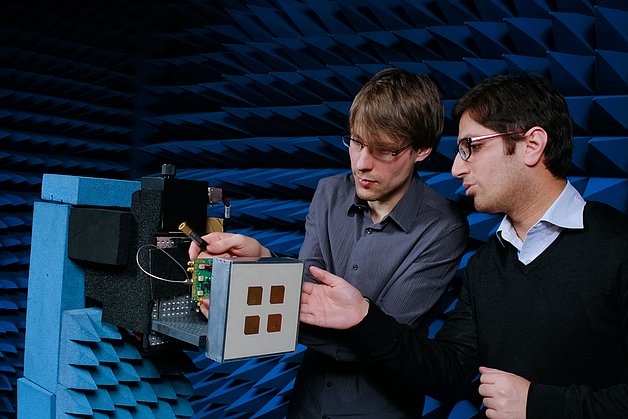
Project
KOMPASSION
In the project compact solutions for interference-free and thus reliable satellite navigation have been developed.
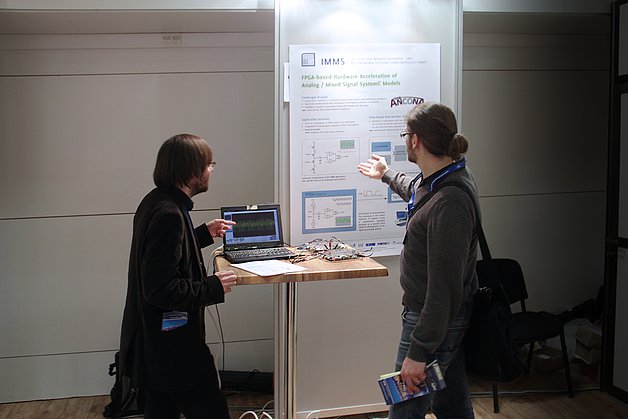
Event,
2015 Workshop on RFI Threats to GNSS
30 Sep 2015, Session 4, Aldenhoven: Live demo of a compact adaptive terminal antenna for interference-free satellite navigation developed in the…
Contact
Contact
Dipl.-Hdl. Dipl.-Des. Beate Hövelmans
Head of Corporate Communications
beate.hoevelmans(at)imms.de+49 (0) 3677 874 93 13
Beate Hövelmans is responsible for the text and image editorial work on this website, for the social media presence of IMMS on LinkedIn and YouTube, the annual reports, for press and media relations with regional and specialist media and other communication formats. She provides texts, photographs and video material for your reporting on IMMS, arranges contacts for interviews and is the contact person for events.


